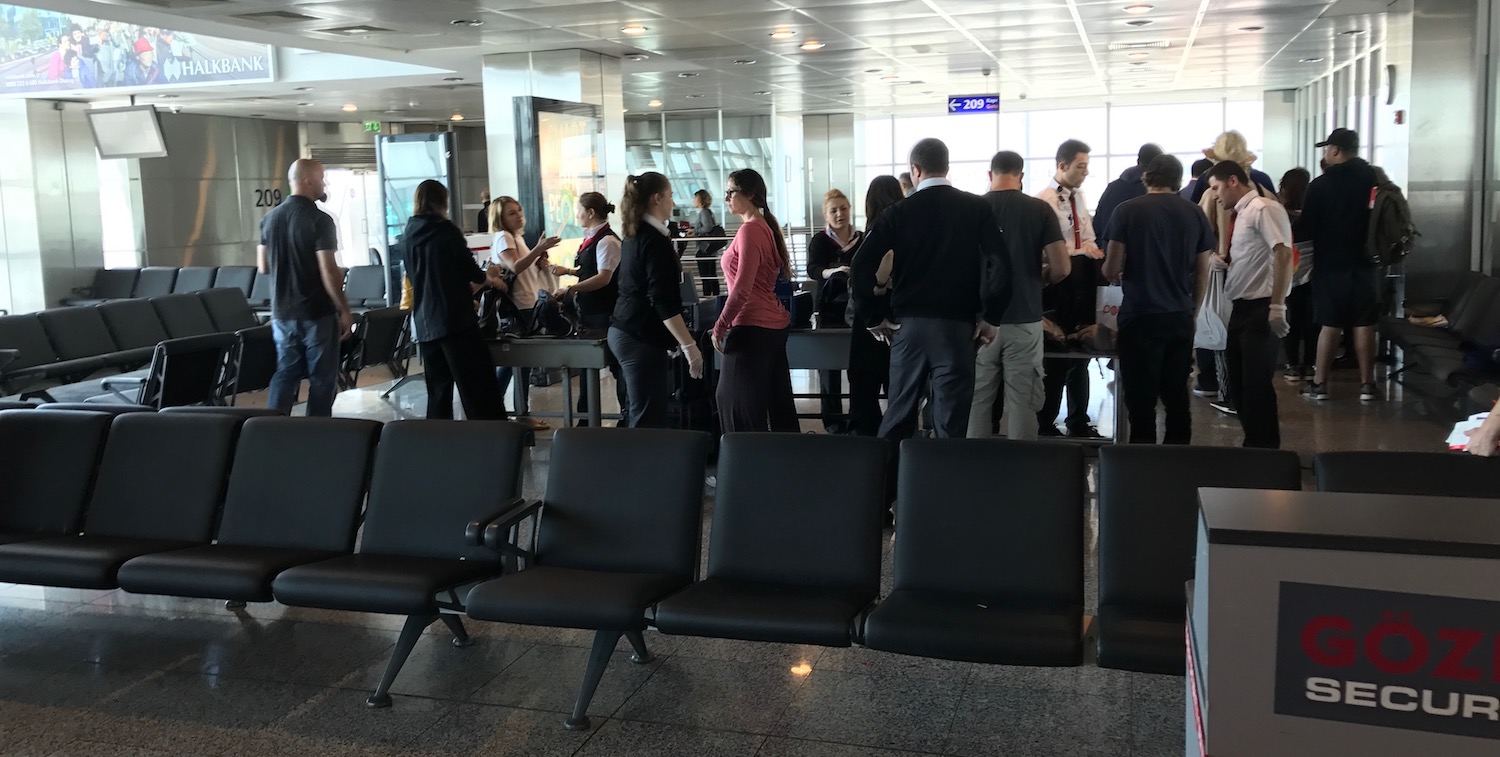Now I’m even more convinced electronics ban is worthless.
Yesterday I flew from Istanbul to Los Angeles on Turkish Airlines. Turkey is one of the eight nations impacted by the in-flight electronics ban.
First, I felt very safe flying out of Istanbul Ataturk Airport (IST). I went through two security checks and two pat downs before reaching the secure side of the airport. Soldiers with sniper rifles were stationed around the airport perimeter and armed police officers visibly patrolled the secure side of the airport (beyond passport control).
> Read More: Is it Safe to Fly Turkish Airlines?
Turkish Airlines also does a wonderful job in handling the electronics ban — I’ll have a post detailing that in the next few days.
But Gözen Security Services staff (the contracted agents hired to conduct security interviews and carry-on baggage inspection) leave much to be desired.
Turkish Airlines allows you to keep your banned in-flight electronic devices until you board the flight. Prohibited electronic devices are gate-checked in a secure container and returned upon landing in the USA.
Upon reaching the gate area in Istanbul for your flight, Gözen agents require you to open up carry-on bags and are presumably supposed to check for prohibited electronic devices.
Although I opened my suitcase in front of the agent, I was simply asked if I had any electronic devices. My bag was never searched. I could have easily kept my laptop hidden under clothing and flown with it in the cabin.
Perhaps TAV uses racial profiling — it could be that my white skin meant a more cursory check. But that would be an easy loophole to exploit.
In order to avoid lying and a potential mid-flight diversion, I voluntarily surrendered my laptop. I can only imagine what might have happened had I pulled out my laptop a couple hours into the flight…
Make No Mistake, The Ban is Ineffective
The American and British governments cite specific evidence that terrorists have created laptop bombs that are very difficult to detect. The reason for the in-flight ban is that they allegedly must be manually triggered.
Let’s assume that is sound intelligence. It doesn’t really matter if passengers are asked to self-identify electronic devices and their bags are not carefully checked.
Then again, let’s not forget that I had already gone through two metal detectors and in both instances had to take my laptop out, power it on, and in the second instance even enter the password and show that everything appeared to look normal.
I never felt unsafe. But I did have to smirk a bit. My first test case showed exactly what I was expecting: a worthless ban.





What do you have to say about what is banned in domestic flights by TSA? Do you really think that bringing my own bottle of mineral water from home is a huge threat? My used tube of toothpaste because it is bigger than the limit?
I hope you die in a terrorist attack.
I can’t recall being ever asked to power on my electronics. Guess I’m a lighter shade of white?
Matt I respect your views but yours is a simplistic take on this. Granted there are several ways to get around these things. But the fact remains that by doing something the governments have put anyone looking for trouble on notice that they are watching closely. This will mean that even if the bad guys want to try to get around by coming up with a novel approach there’s a high likely hood of them screwing it up.
Wow, those are some harsh comments above, Matt. Sorry to see that. I’ve loved your blog for years. Please keep up the great work.
I appreciate this direct feedback from actual experience. It means so much more than just people’s speculation.
Let’s hope this ban gets removed sooner rather than later. I wish UK based airlines would follow TK (and the Gulf airlines) and allow us to check electronic devices at the gate. I’ve got a BA flight out of CAI coming up soon, but like you, I wouldn’t chance breaking the rules, even if the inspection at the gate was cursory at most.